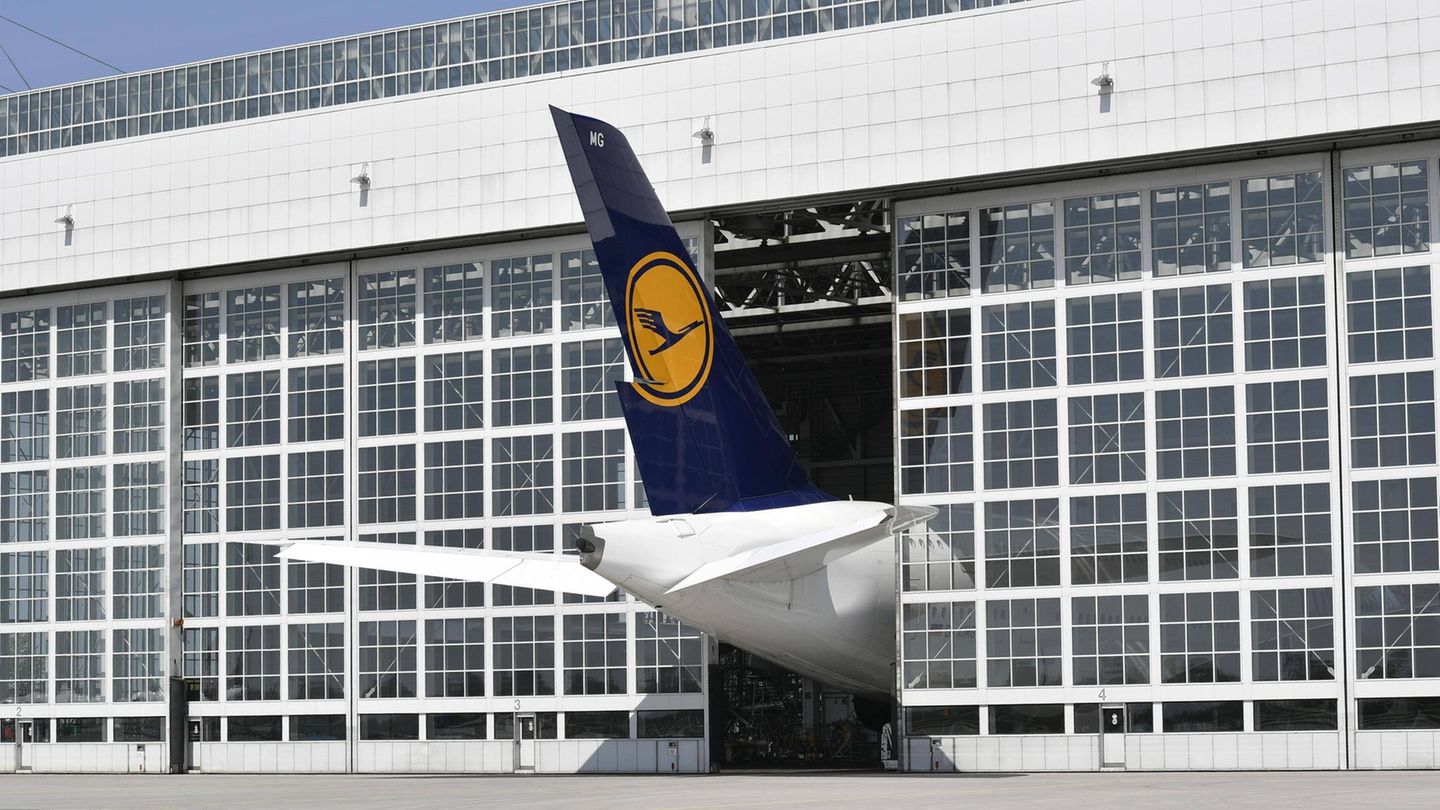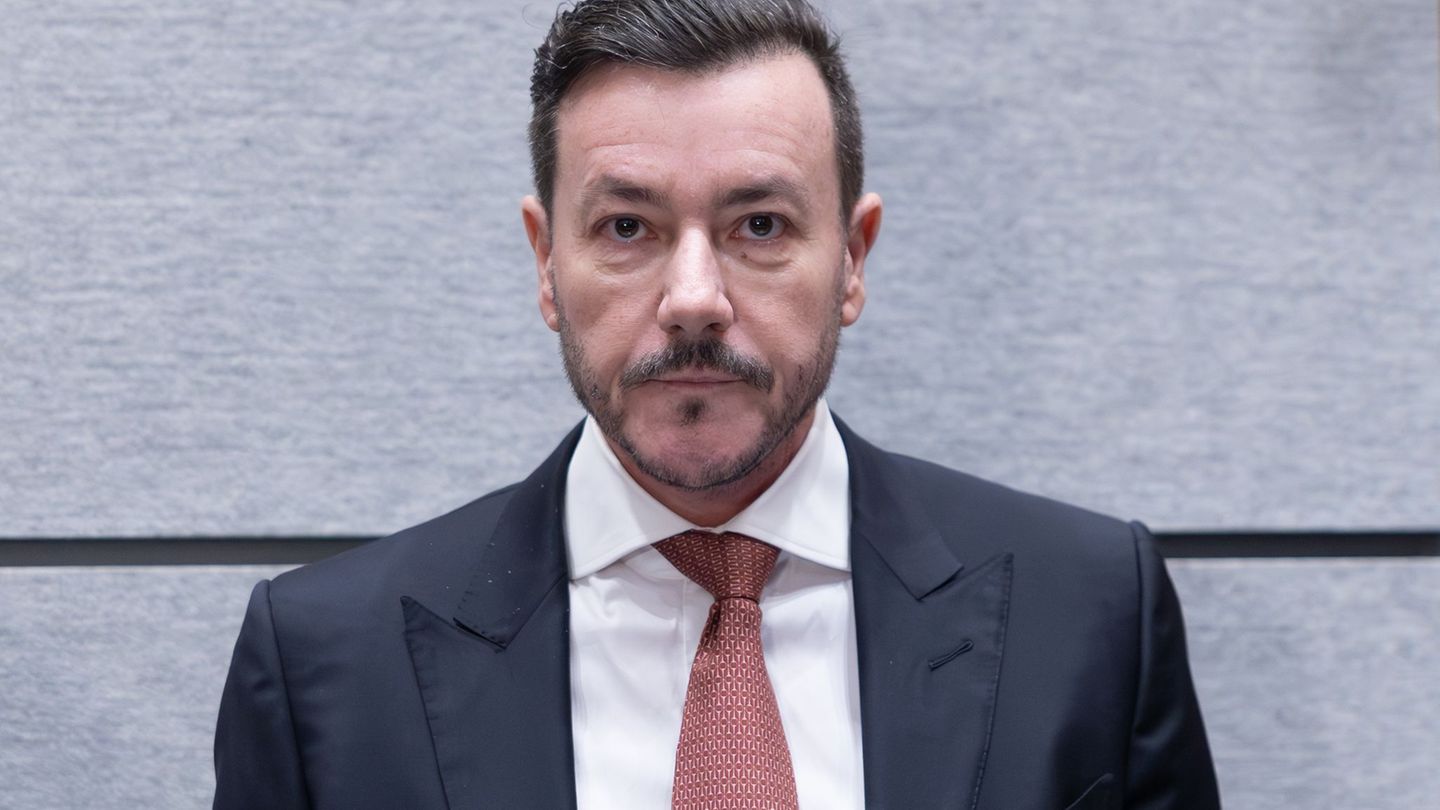Maintaining and repairing aircraft is part of Lufthansa Technik’s core business. In the future, the company also wants to service German army fighter jets and transport helicopters. The airline subsidiary’s plans are ambitious.

This is original content from the Capital brand. This article will be available for ten days on stern.de. After that, you will find it exclusively on capital.de. Capital, like the star to RTL Germany.
An airline is gearing up: In the future, the airline subsidiary Lufthansa Technik also wants to work on military systems. While the employees have previously serviced, repaired and maintained civilian aircraft, they will now also be working on fighter jets and transport helicopters of the German armed forces. The “Handelsblatt” was the first to report on this.
The cooperation between Lufthansa Technik and the German Armed Forces is nothing new. The maintenance company has been looking after the German Air Force’s air force for decades and converting civilian aircraft into government aircraft. Now it wants to expand its cooperation with the German Air Force and “also provide greater support beyond looking after the air force,” according to the 2023 annual report.
New business area for military support
To this end, Lufthansa is expanding its new “Defense” business area. “Back in 2019, we made the decision to take a more strategic approach to the partnership with the Bundeswehr, which has existed for over 60 years,” says Jens Krüger, spokesman for Lufthansa Technik, to Capital. “We see ourselves as part of national sovereignty. Now this has developed into a whole range of activities.”
Contracts have already been signed for some of the projects, while negotiations are still ongoing for others: for example, the German army is receiving systems for signal-detecting airborne surveillance and reconnaissance under the “Pegasus” project. Lufthansa Technik is modifying the three aircraft required for this.
For the 60 heavy “Chinook” transport helicopters from Boeing, which the Air Force expects to receive from autumn 2027, Lufthansa Technik wants to ensure the operational availability of the fleet as part of an industrial team. Negotiations are still underway about who will take on which work. The same applies to the maintenance contracts for the 35 US F-35 fighter jets, which are being purchased to replace the Bundeswehr’s aging Tornado aircraft.
The company is also interested in converting military aircraft in the future: if NATO modernizes its AWACS airborne radar system, which consists of converted Boeing 707s, Lufthansa Technik could carry out the necessary modifications. The outdated jets are to be replaced by the Boeing E-7, which is based on the Boeing 737 passenger aircraft – the model that Lufthansa technicians are very familiar with from the civilian business.
Competencies lie in maintenance work
Lufthansa Technik employees will not handle weapons in any of the projects, press spokesman Krüger explains to Capital: “We are concentrating on what we are familiar with: Lufthansa Technik will maintain and overhaul aircraft and carry out repairs to engines and components such as landing gear.” The necessary military approvals for these services are already in place, and processes and technologies are similar to those used in civil aviation systems. The company will certainly need to provide its employees with appropriate training in some areas, says Krüger, but “acquiring know-how about new aircraft is part of our expertise.”
This will also create a number of new jobs at Lufthansa Technik’s Hamburg location. In a current job advertisement, the company is already looking for sales acquisition specialists specifically for its “Defense” division.
Lufthansa forays into growth market
Aviation experts see Lufthansa Technik’s move into the defense market as a logical step that benefits both sides. If the German army places maintenance work on military systems in the experienced hands of the airline’s subsidiary, it will not have to spend any money to maintain the machines itself.
Lufthansa Technik, in turn, can continue to expand its business after the airline subsidiary has recovered from the pandemic years. In the 2023 financial year, Lufthansa Technik was able to increase revenue by one billion to 6.5 billion euros, and operating profit was 628 million euros.
Lufthansa Allegris
This is what the new seats look like in all travel classes
With the “Defense” business division, Lufthansa Technik is entering a promising growth market. The project is part of the extensive “Ambition 2030” growth program. After the entry of another investor into Lufthansa Technik failed at the end of last year, the maintenance company is now pushing ahead with its ambitious plans independently. Sales are expected to rise to more than 10 billion euros by 2030.
“Turning point” reaches maintenance industry
Although initial plans for increased cooperation with the Bundeswehr were already drawn up in 2019, the geopolitical situation is likely to have at least accelerated the development of the “Defense” division. After all, the topic of security and the military is increasingly being accepted by politicians and the population in Germany because of the war in Ukraine. Defense spending is increasing in order to modernize the Bundeswehr so that it can fulfill its national defense mission.
Accordingly, efforts towards armaments should not deter investors: After all, the “Defense” division is only a small part of Lufthansa Technik and even this only contributes just under a fifth of the Lufthansa Group’s revenues. The ambitions of the technology subsidiary are therefore unlikely to have any impact on the Lufthansa Group’s ESG rating. This was most recently rated “AA”, making the airline the “ESG Sector Leader” among the airlines analyzed by MSCI ESG Research.
Source: Stern




